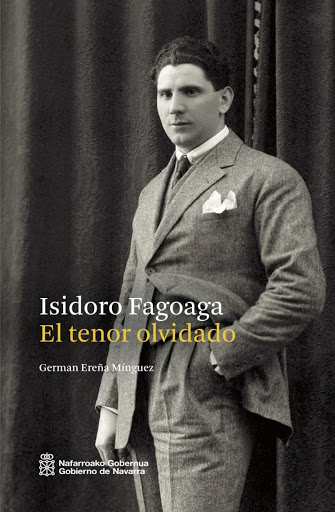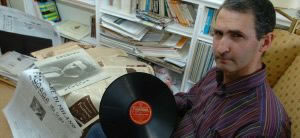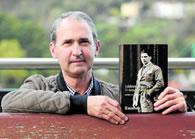
ISBN 978-84-235-3490-6 571 pp
Click here to order the book

Shellac collectors and tenor adepts will be delighted with the first biography of one of the most important Wagnerian tenors of the interbellum in the Latin countries. Isidoro Fagoaga’s (1895 – 1976) career was a relatively short one. The Basque tenor made his operatic debut (Samson) in 1919 and sang his last performance in March 1937 (Siegmund). His recorded legacy is limited to only 7 sides: Chenier, Tannhäuser, Walküre, Götterdämmerung, Parsifal and Otello. All recorded in 1929. These sessions took place between his performances of Parsifal at the Carlo Felice in Genova and singing Pollione opposite Rosa Raisa at the Naples San Carlo.
Click here to listen to his complete recorded output.
The voice on record sounds resonant and well-focussed. His Wagner interpretations are fully detailed and lyrical in approach. His “Amfortas” from Parsifal is extremely moving and his finely controlled singing also displays considerable power when needed. His Tannhauser is tautly controlled and hauntingly vocalized. Also in his “Nium mi tema” he creates a true character and strikes the listener as quite modern in approach and his “Si fui soldato” has the proper, intense slightly histerical quality. And let’s face it there is simply no tenor around today who can sing the Siegfried “Racconto” as exciting but also as refined as Fagoaga does.
The bombing of Gernica (April 1937) and its civilians opened the way to Franco’s capture of Bilbao and his victory in northern Spain.
The barbarian action broke something in the sensitive Fagoaga and led to the abruption of his career. He felt deeply wounded in his Basque patriotism and he joined other Basque refugees in exile to escape the persecution by Franco.
He was arrested by the French authorities and was imprisoned in the Gurs concentration camp for a month. He would spent the rest of the war years in Saint Jean de Luz devoting himself to his other great passion writing and literature. In the war period he also taught singing. Amongst his students was Hubert Grabner then a young Austrian soldier.

(1912-1983 Hubert Grabner)
Fagoaga devoted the remainder of his life to the Basque cause but also to writing. In 1964 he returns to Spain after having lived in exile in Argentina for many years. Fagoaga then suffered the fate of total oblivion except perhaps for the lovers of tenor singing. Forgotten up until now though. Researcher German Erena Minguez was given access to the Fagoaga heritage and the result was this fascinating book. In more than 570 pages and 28 chapters the author covers the tenor’s life and career in great detail. The book is loaded with interesting photos from the tenor’s private collection and a detailed chronology which makes fascinating cast reading. There’s a discography but surprisingly no index. A CD should have been included as well. As a bonus all photos, reviews and texts which didn’t reach the book can be accessed by scanning a personal code which is provided on the inside cover of each book.
All compliments to the author for his magnificent epos.


(the author with one of Fagoaga’s 78 records and later with his book)